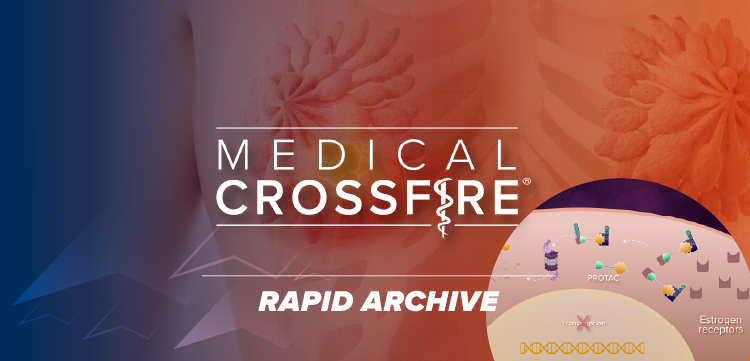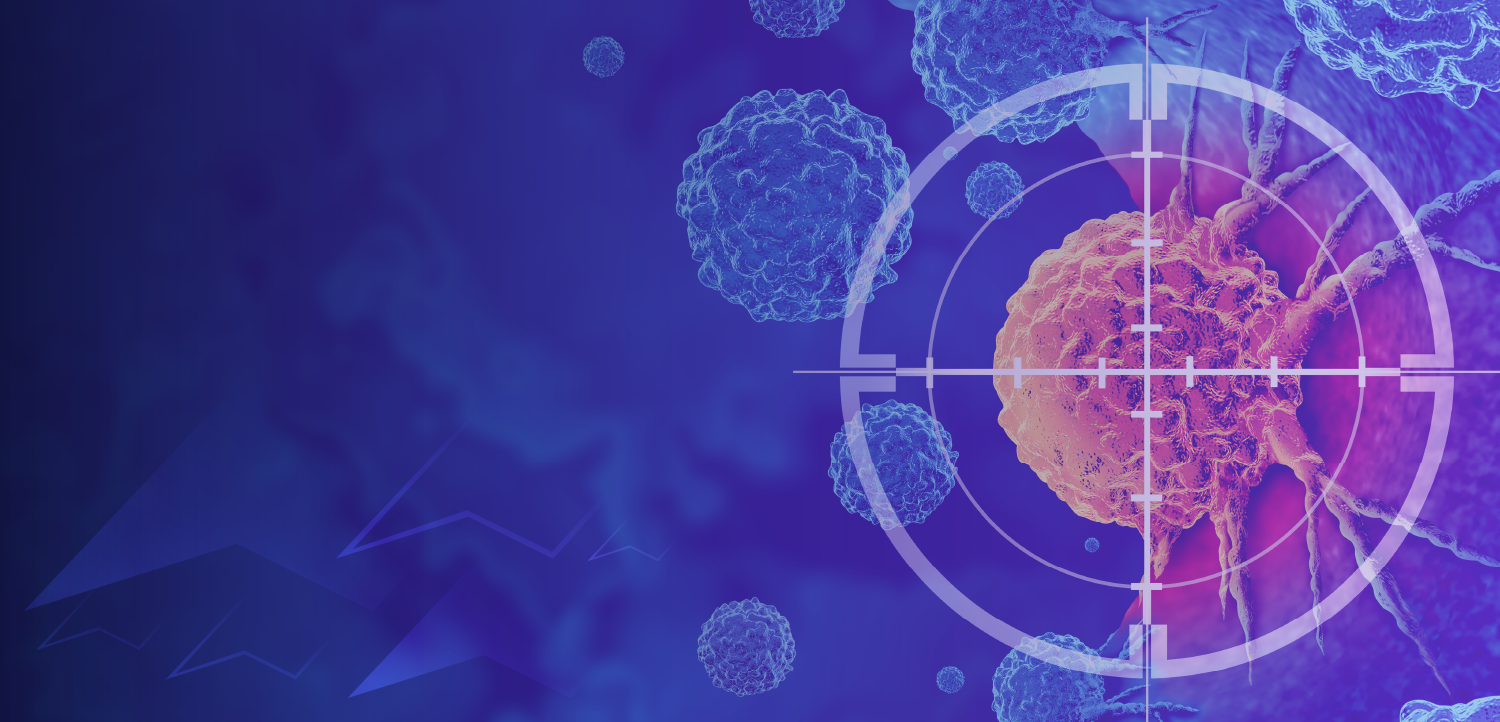
Anti-CD19 CAR T Cells for the Treatment of Relapsed/Refractory NHL
In an interview with Targeted Oncology, Manali Kamdar, MD, discussed the current relapsed/refractory B-cell non-Hodgkin lymphoma space, along with data from the phase 1 clinical trial of an anti-CD19 CAR T-cell product for these patients.
Research has shown that genetically engineered chimeric antigen receptor (CAR) T cells have demonstrated effectiveness against chemotherapy refractory CD19-expressing B-cell malignancies.
In a presentation given at the American Association for Cancer Research 2022 Annual Meeting, Manali Kamdar, MD, explained the background and data of a phase I clinical trial which tests a novel anti-CD19 CAR T-cell product in adults with relapsed/refractory B-cell non-Hodgkin lymphoma.
A total of 7 patients have been treated to date, being administered an average dose of 1.2 ± 0.2 x 108 CAR T cells. Patients included in the trial consist of those with marginal zone lymphoma (n=1), follicular lymphoma grade 3A (n=1), transformed lymphoma (n=3), follicular lymphoma low grade (n=2), and diffuse large B-cell lymphoma (n=1).
Of the patients diagnosed across 5 B-cell non-Hodgkin lymphoma subtypes, CD19 CAR T-cell product manufacturing was successful for all, and no safety related out of specifications as well as no new post infusion safety signals were detected. Additionally, 6 of the 7 patients enrolled remain alive and 5 patients are in complete metabolic response, demonstrating promising efficacy and safety.
In an interview with Targeted OncologyTM, Kamdar, MBBS, assistant professor of medicine and clinical director of lymphoma services at the University of Colorado Hospital, discussed the current R/R B-cell non-Hodgkin lymphoma space, along with data from the phase 1 clinical trial of an anti-CD19 CAR T-cell product for these patients.
Targeted Oncology: Can you provide some of the background regarding the phase 1 clinical trial testing a novel anti-CD19 CAR T-cell product in adults with R/R B-cell non-Hodgkin lymphoma?
Kamdar: Genetically engineered CAR T-cell therapies have exhibited distinct efficacy against chemotherapy refractory CD19 expressing B-cell non-Hodgkin lymphomas. Our phase 1 clinical trial tests a novel anti-CD19 CAR T-cell product in adults with relapsed/refractory large B-cell lymphoma. It is also important to underscore that the existing CAR T-cell therapy manufacturing takes about 3 to 4 weeks, and we typically have to outsource that to the companies that have the approval for the CAR T-constructs.
In order to simplify the process of CAR T-cell manufacturing, the CliniMax prodigy by Miltenyi was used in this phase 1 clinical trial. The prodigy is basically a self contained, closed, largely automated device that obviates the need for human involvement in numerous steps, thus reducing human resource utilization and the risk of cell contamination.
The study investigated a CD19 directed CAR T-cell product that was produced on site by GBF using the prodigy. The idea was that the expected timeline from manufacturing to delivery could be shortened to as less as 2 weeks or even under, thus hopefully decreasing the amount of interim therapy as well as potential morbidity.
What were the findings of the trial?
Despite the heterogeneity in disease subtype and leukapheresis product quality, CAR T-cell production and expansion was found to be consistent with final transduction efficiencies between 14% and 45%, cell viability between 88% and 91%, and an average yield of about 3.2 times 109 cells before harvest, thus allowing for product banking. There were no safety related out of specification events that occurred. However, patients did have out of spec products that were infused due to low transduction efficiency, both at 14% rather than the more than 20% release criteria.
With respect to results to date, 7 patients have been treated with an average dose of 1.2 times 108 CAR T cells with a median age of 61, median line of treatment of 4, underscoring a heavily pretreated population. The histologies included marginal zone lymphoma follicular lymphoma grade 3, transformed lymphoma marginals of follicular lymphoma, low grade, and diffuse large cell lymphoma. One patient required a second apheresis due to poor cell expansion. Disease response was assessed on days 90, 180, 270, and 360 post infusion, using the 2014 Lugano criteria.
Despite 2 out of specifications products, the day 90 scan showed a complete metabolic response in 6 evaluable patients to date. Of the 6 patients with a complete metabolic response, 1 patient unfortunately progressed on day 180 whilst others remain in remission at a median follow up of 12 months.
Can you further explain the safety results demonstrated in the trial?
With respect to toxicity, the safety profile was very manageable. Two patients experienced grade 2 cytokine release syndrome, 1 patient experienced grade 2 neurotoxicity. There were no grade 4, no grade 3, or 5 cytokine release syndrome or neurotoxicity that was reported. There were no new safety signals that were even detected. Flow cytometry was utilized to measure CAR T-cell expansion and persistence in 5 patients. We noticed that peak CAR T-cell expansion range from the 5 to 15 cell persistence was detected 4 to 5 patients through at least a 180.
In conclusion, 7 patients diagnosed with 5 different B cell non-Hodgkin lymphoma subtypes have so far been treated with this CD19 CAR T-cell product manufacturing was successful for all patients. There were no safety related out of specifications and no new post infusion safety signals that were detected. To date, 6 out of 7 patients remain alive with 5 patients in complete metabolic response. Clearly, this phase 1 study looks very promising with its efficacy as well as safety profile. It continues to enroll, so we hope to present follow up data at later meetings.
Knowing about the potential success of CAR T cells in this patient population, what changes do you anticipate for future treatment?
The world of relapsed/refractory B-cell non-Hodgkin lymphoma has clearly been very exciting to manage in the times of recent FDA approvals with novel chemotherapy-free, especially immunotherapy constructs. With the splash that CAR T-cell therapy made in the third-line setting and with the most recent approval of axi-cel in the second-line setting, I think it opens up better opportunities, efficacy, and less toxicity for our patients with relapsed refractory non-Hodgkin lymphoma. However, more work remains to be done, especially in patients who continue to relapse despite these exciting novel therapeutics.
Are there any other studies currently examining CAR T-cell therapy in this patient population?
For patients with CAR T-cell therapy, about 40% of patients experienced durable remission. But for the remaining 60%, we certainly need much more work. I think in that space, there are other CAR T-cell constructs that are being studied, for example, bicistronic CAR-T, [and] bispecific CAR-T, so as to limit resistance. There are bispecific antibody treatments that are also coming down the pike. There's of course, allogeneic products, anti-CAR T-cell treatments, and I think there's just a host of options at this time in the form of clinical trials.
I believe that the only way to advance therapies and thus outcomes in patients with relapsed refractory B-cell non-Hodgkin lymphoma is to do exciting novel clinical trials. I think this is the exact space to be in, and I am very privileged to be part of the clinical research that's going on.
What do you look forward to learning more about regarding the future of this space?
Any research in lymphoma excites me at this time. There [were] many preclinical results presented at AACR, especially with some of the novel chemotherapy-free, targeted approaches. I'm really looking forward to looking at certain exciting molecules that may be showing great preclinical value so that we can take it from the bench to the bedside.














































